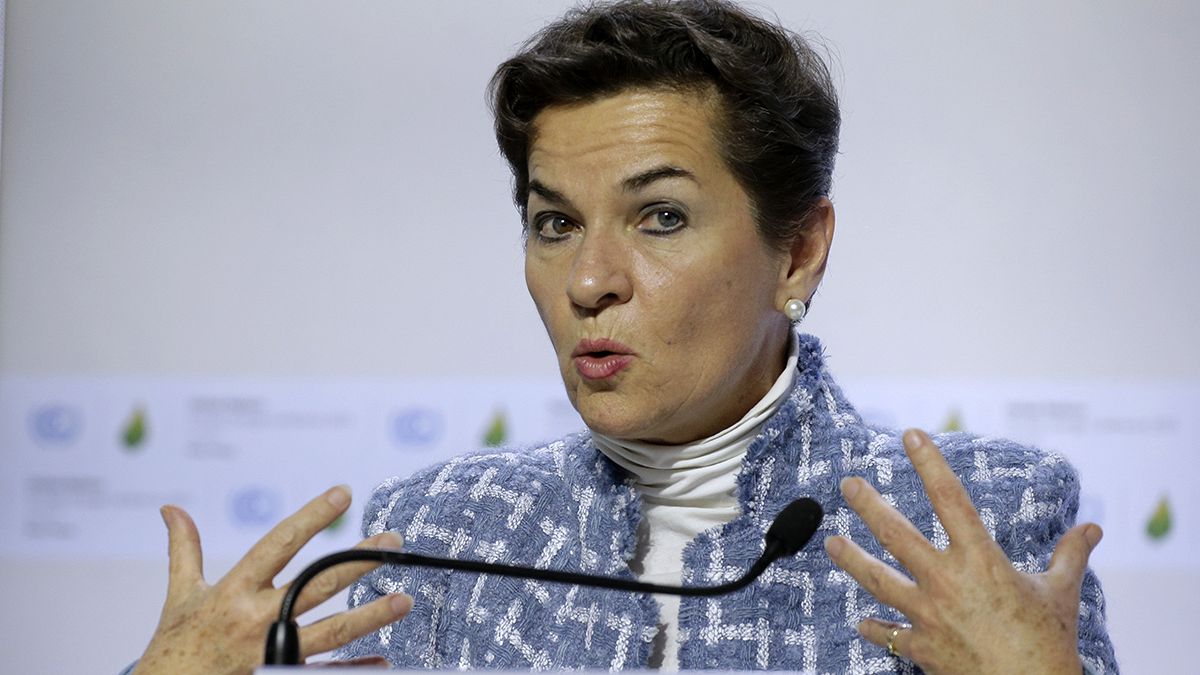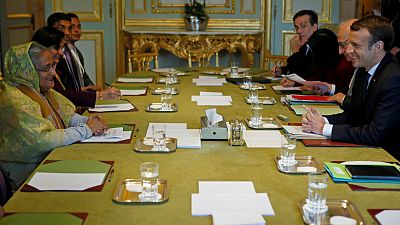Isabelle Kumar, euronews: “Christiana Figueres, many thanks for being with us. My first question, why do you think this climate deal is going to
Isabelle Kumar, euronews: “Christiana Figueres, many thanks for being with us. My first question, why do you think this climate deal is going to work?”
Christiana Figueres, UNFCCC Executive Secretary: “Well, because it is fundamented on very, very strong drivers, which are national interests. We have 188 national climate change plans produced by 188 countries that are looking at what they can do to address climate change, from the perspective of their national interests and what is actually going to move them forward. So it is, I think, on very strong ground.”
euronews: “And what about implementation? Getting that deal started was difficult; implementation is going to be even more difficult.”
Figueres: “More difficult, absolutely. I have said without minimising how difficult that was, and now the difficult part starts. But fortunately we are not starting from zero. There are already an enormous number of initiatives and actions in place. So, implementation is actually partly just making sure that all of that runs forward. At a higher level, it is about aligning the strength and the impetus of technology, of finance and policy, and aligning all of that towards decarbonisation.”
euronews: “Each nation is free to define their own goals. How can you make sure they just don’t go for the lowest common denominator?”
Figueres: “Well, we know where they are. That is the base line. What is important is where they are going to go. And that has already been established. It is going to be a process of continuous improvement, because every five years they will come to the table, they will report to each other what have they done, and they will assess what more they can do. So what is important is the direction of travel.”
euronews: “And when they don’t do it?”
Figueres: “When they don’t do it they will be under a lot of peer pressure from each other. But more importantly, they are actually very, very clearly seeing that this is actually in their interest. It is in their national development interest, it is in the global economic and national economic interest. So, there are huge incentives here, because there is job creation, there are new industries that are going to be created. There is better energy security, there is better transport, there is improved health. There is just an extraordinary number of incentives which align.”
euronews: “And what about in terms of the low oil prices? Is that going to affect implementation? Because the IMF recently said that was of concern.”
Figueres: “Well, interestingly enough, it certainly has not. What it has done is clear off the table a lot of very expensive oil explorations that would have been [carried out]. It is better now that they are off the table, because they depended on much higher oil prices. So, everything that was expensive—deep water drilling, arctic drilling, sour gas—all of those which should stay in the ground, because we don’t need them any more and they are too expensive, those have been cleared away. And now I think the oil and gas industry is actually focusing and realigning itself to the lowest cost oil and gas reserves, which is probably the better way to go.”
euronews: “And finally, what about the US presidential election? We know there are some presidential candidates who really are not on board on this. How worried are you about that?”
Figueres: “Well, I think the American public will be able to discern the difference. You know, it is actually quite sad that this has turned into a partisan issue in the US, because it certainly is not. It is about economic competitiveness, where the whole of the United States should be standing united and behind that. Because it is about: ‘which is the country that is going to produce the best renewable energy?’ [Not] just in that sector, but also energy efficiencies, smart metering, which is the country which is going to produce the technology of the future? Right now it is India which is producing the technology of the future. Does the US really want be a second fiddle to China with respect to the future? I hope not.”



